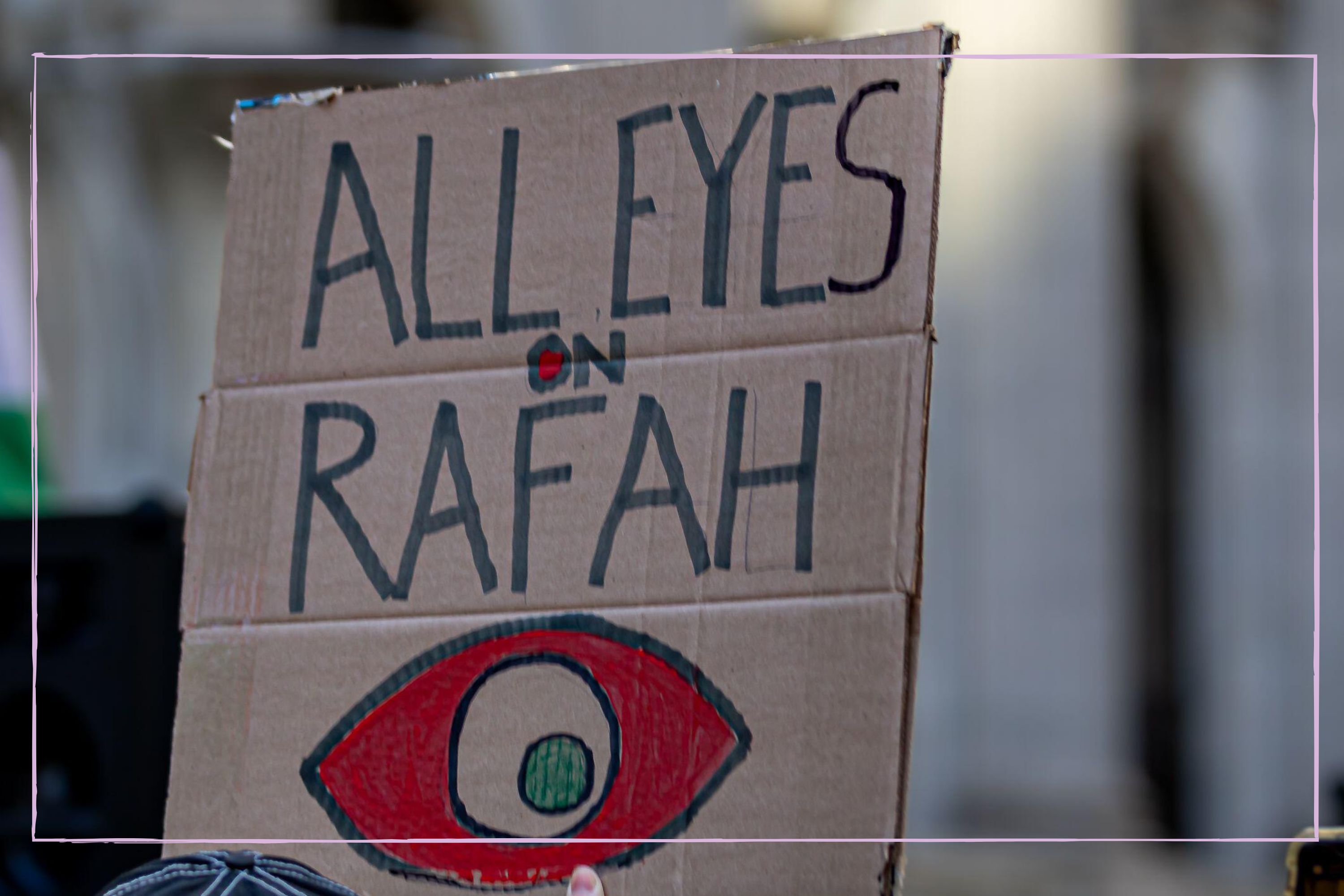
The 'all eyes on Rafah' slogan has been everywhere online - here's the meaning behind the phrase, and a psychologist shares how to explain it to children and teens who might've seen it trending online.
Teens and children part of the 'anxious generation' will likely have been exposed to the war unfolding around the world. Part of caring for their mental health will include figuring out the best way to talk to your child about war, and the inherited trauma that can come from being victims of war, among an unsteady political climate.
If this is the case, you may be wondering what to tell your child or teen about the 'all eyes on Rafah' slogan, that they've probably either heard others talking about or seen online. We outline the origins of the phrase and the meaning behind it, and how to talk to young people who might be concerned.
We spoke to chartered psychologist Dr Mark Rackley about broaching the topic with youngsters. He told us "When speaking with children and teens about this subject, it's vital to consider how sensitive the child is and to tailor the conversation to what is age-appropriate, so as not to confuse or traumatise them. Some context is helpful to let the young person know that there is a war occurring and that people around the world are highlighting the story of the victims of the war and are upset that innocent people are being killed because of the war."
What does 'all eyes on Rafah' mean?
The phrase is a call for bystanders not to ignore what’s happening in the city of Rafah, where over 1 million people are taking shelter from the violence taking place in Gaza.
Lobbying groups and charities took the slogan, collectively using it for campaigns and as a rallying cry at protests around the world, at the ongoing atrocities facing victims of the conflict. It gained particular traction following Israel carrying out a strike targeting a Hamas compound that ended up causing casualties to many civilians in Rafah.
High-profile celebrities then shared identical 'all eyes on Rafah' graphics on their social media accounts, and the ensuing #AllEyesOnRafah tag garnered vast numbers of views, particularly across TikTok and Instagram. The viral graphic shows a refugee camp in the Palestinian southern region of Gaza, with tents in the camp arranged to spell out 'all eyes on Rafah.' The image is assumed to be AI-generated.
It's not actually a new phrase, and according to Forbes, was coined by Rick Peeperkorn, director of the World Health Organization's Office of the Occupied Palestinian Territories, in a statement made in February. He used the phrase relating to Israeli Prime Minister Benjamin Netanyahu’s orders to plan the evacuation of Rafah in anticipation of the area coming under attack.
How to talk to children and teens about 'all eyes on Rafah'
- Explain what a protest is. Dr Rackley shares the importance of explaining what people are protesting about, telling them 'all eyes on Rafah' is a protest against the war and this is something that historically occurs during times of war.
- Add in some history. If you're using previous examples to share the nature of a mass protest, offer prior examples of this happening for context. This will not only add meaning to the explanation, but will give you a chance to explain important times of historical significance.
- Let them ask questions. You might not have the answers, but this is something you can find out together.
- Let them be anxious. Dr Rackley says "Reassure them that you are there to support them if they are anxious about what they may be seeing or hearing about this particular story - this is totally fine." Adults are going to be anxious about what is happening too, and young people might feel reassured to have a shared concern with their parents.
For more on teens, we look at the government's National Service plans and how they could affect your child, and debunk the teen myths that are not true. If you're concerned about what they might be viewing online, you might want to chat to your teen about these worrying wellness challenges.







